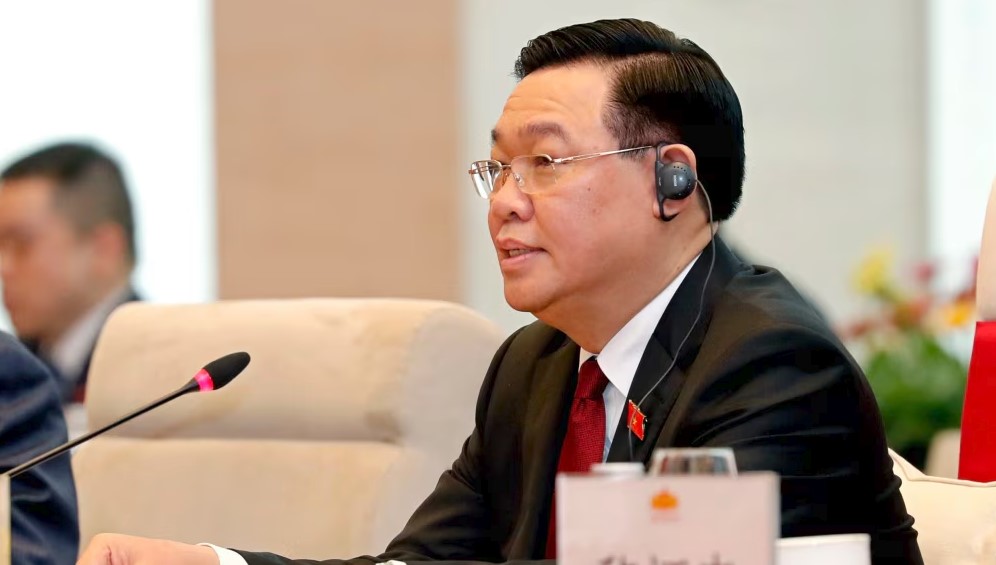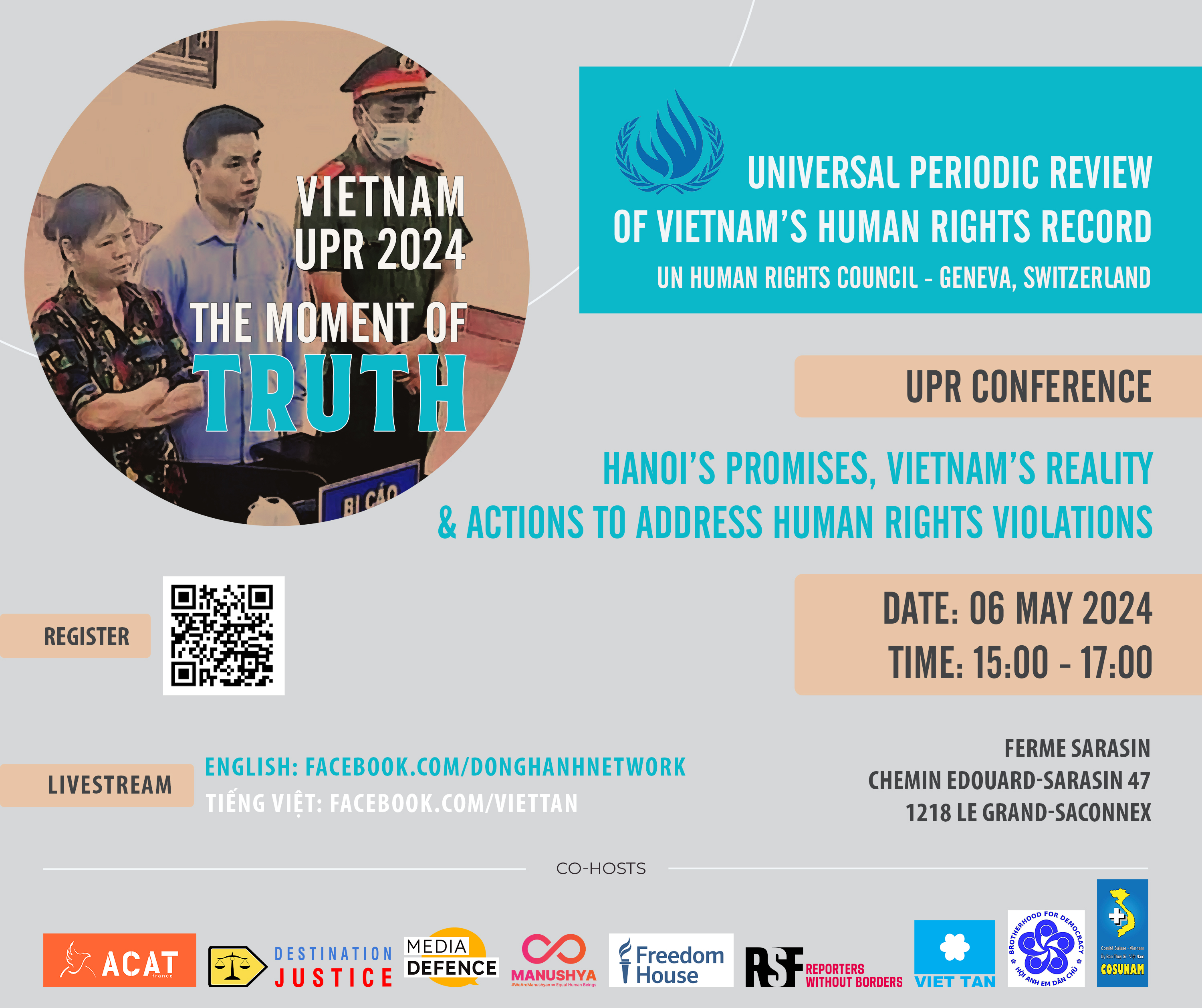Viet Tan strongly endorses this bipartisan call to “integrate human rights issues into the core of US-Vietnam bilateral policy.”
Secretary Clinton’s visit to Vietnam is a special opportunity to press the Hanoi government to release political prisoners and lift restrictions on internet freedom.
Viet Tan concurs with the members of Congress that human rights is essential for Vietnam’s development.
Congress of the United States
Washington, DC 20515
The Honorable Hillary Rodham Clinton
Secretary of State
U.S. Department of State
2201 C Street, NW
Washington, DC 20220
Dear Secretary Clinton,
We are writing in advance to your upcoming attendance at the ASEAN Regional Forum, scheduled to take place in Hanoi on July 19 – 23, 2010, and urge you to take immediate action regarding the many human rights challenges in Vietnam. Visiting Vietnam around the anniversary of the normalization of U.S.-Vietnam relations represents a crucial opportunity not only to raise pressing concerns for imprisoned activists but to integrate human rights issues into the core of U.S.-Vietnam bilateral policy.
The Government of Vietnam’s desire to reap the benefits of the global economy must be matched by efforts to respect comprehensive human rights. To adhere to global trading rules while ignoring international law and its intrinsic obligations pertaining to civil and human rights will only impede the development of the Vietnamese people. Respect for human rights must be a parallel priority to Vietnam’s development.
The Vietnamese government holds in its cells hundreds of prisoners whose only crime is to peacefully advocate for social justice. Particularly, we are concerned about the celebrated writer and activist Tran Khai Thanh Thuy’s continual imprisonment and the circumstances of her detention. Ms. Thuy was beaten and arrested by plain-clothes police, yet ironically, she was sentenced to three and a half years imprisonment for “physical assault” in February 2010.
Ms. Thuy’s case is but one of the many instances where democracy advocacy was met with political imprisonment. The government of Vietnam seeks to promote an open economy yet closes the doors on outspoken citizens, all in the pernicious attempt to monopolize political discourse.
In your landmark January speech on Internet freedom, you criticized countries that “operate in an environment of censorship” and encouraged citizens to exercise “their rights of free expression by circumventing politically motivated censorship.” We welcome this speech on the Internet, as censorship is unbridled and ubiquitous inside Vietnam today.
In fact, a new directive requires Internet cafes and all commercial establishments in Hanoi to install server-side monitoring software. This is alarming and highlights our concerns of a sophisticated and sustained attack against online dissent. Likewise, advocacy concerning the country’s development policies regarding bauxite has been met with website shutdowns and an escalation to physical harassment and even imprisonment.
At a time when the Vietnamese government has escalated its aggression towards activists and taken concerted steps to silence online speech, the international community, including the United States, has on several occasions called on the Vietnamese government to comply with international human rights laws. Now, on the occasion of your upcoming trip to Vietnam, we strongly and respectfully recommend that you take this opportunity to raise the following issues with your counterparts in Vietnam:
- Call for the immediate release of imprisoned democracy activists such as Tran Khai Thanh Thuy, Pham Thanh Nghien, Le Cong Dinh, the permanent and unconditional release of Father Nguyen Van Ly, and all other peaceful dissidents, religious activists, bloggers, and cyber activists.
- Advocate for unfettered access to Facebook and other social networks, and the repeal of Decision 15 – the regulation requiring retail Internet locations to install an application to block access to websites and track user activities.
- Arrange a meeting with democracy activists and/or family members of political prisoners. Your visit will serve as an important source of moral support for the activists and their families.
As a signatory to the International Covenant on Civil and Political Rights (ICCPR), the Government of Vietnam is expected to respect and uphold civil and political rights of individuals, including the most basic of rights — freedoms of speech, press, expression, religion, and assembly.
We thank you for your attention to these urgent matters. We look forward to further discussions with you on this subject.







